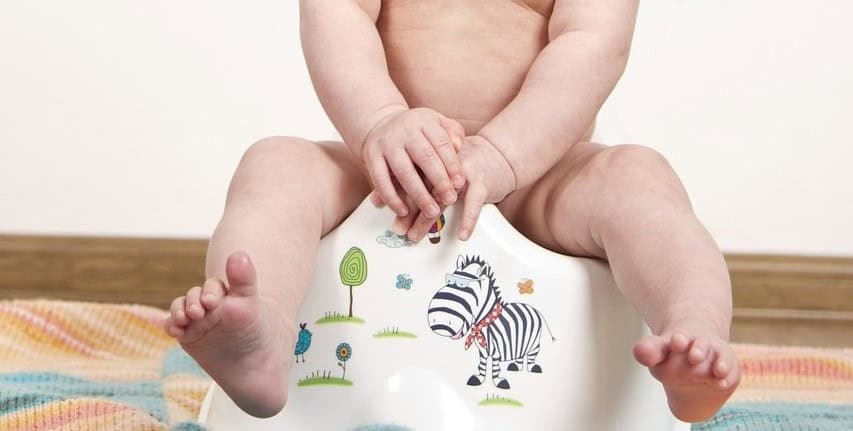Potty training is a touchy subject. It’s the source of a great deal of unnecessary stress and anxiety for moms and dads, especially those who are experiencing parenthood for the first time. Our advice to you at this point is simple: relax. There’s no reason to be concerned about a two-and-a-half-year-old who isn’t toilet trained yet. The average age for potty training is three, and that’s just an average. In other words, it suggests that while some kids are trained closer to two, others don’t reach that milestone until they’re four.
We’d be willing to guess that pressure from family and friends is causing most of your stress. Maybe grandma is telling you that in her day babies were toilet trained by the time they were eighteen months old. If that’s the case, grandma needs to back off. It’s been a while since she had toddlers of her own. Even if it’s true that kids were potty trained earlier when she was a young mom, there may be a reasonable explanation for this. Grandma probably used cloth diapers. Most parents today use disposables. Since disposables are far more absorbent than cloth, kids don’t feel the same degree of discomfort when they’re wet. As a result they’re not in such a hurry to toilet train as they were in the past.
Here’s a key principle to bear in mind: the toddler who succeeds in potty training is the one who is developmentally ready and wants to be trained. If kids are forced into toilet training too soon, they may develop a negative attitude that will only prolong the process. Here are a few signs that can help you decide if your child is mature enough to begin:
- He demonstrates some awareness that elimination (especially of stool) is going on.
- The time between wet diapers is increasing. This indicates that a specific spinal-cord reflex, which automatically empties an infant’s bladder, is now being inhibited by signals from the brain.
- He is able to understand and carry out two or three simple commands in sequence.
- Predictable bowel movements. Regularity can help you figure out the times of day when training attempts are most likely to succeed.
- He tries to imitate some of the things you do every day.
- Can he pull his pants down and pull them back up by himself? For obvious reasons, this skill is vital to his success.
- Does he want to wear “big boy” underwear? This symbol of independence can be a tremendous asset. Underwear can actually be used to reward a child for his or her interest in toilet training.
- He is not embroiled in negativism. If your child’s favorite word is still no and you’re still neck deep in a daily struggle for control, this is not the best time to start potty training.
If your two-year-old is ready to learn, make sure that you are ready to teach. Start by talking about the subject in a way that will spark your child’s interest. Get him excited about the future when his toilet habits will prove to everyone how “grown up” he is. Let him know how happy you will be for him when he succeeds.
Then sit him on the potty chair and wait. Patience is of the essence here. Be prepared for mistakes, and don’t let them upset you. Praise and reward successes. Above all, try to maintain a casual attitude throughout. Avoid punishment. As we’ve already indicated, a few children are not ready for potty training until they are three or four years of age, though most will make the grade much sooner. Above all, don’t worry when all the other children you know are trained and your child is not. Everyone eventually learns to use the toilet.
For more information on this and other issues related to the early childhood years, we’d strongly recommend that you check out Focus on the Family Complete Book of Baby & Child Care. It’s available through our ministry and can be ordered by way of our website’s Online Store.
Resources
Focus on the Family Complete Guide to Baby & Child Care
Busy Mom’s Guide to Parenting Young Children
Articles
Potty Training












